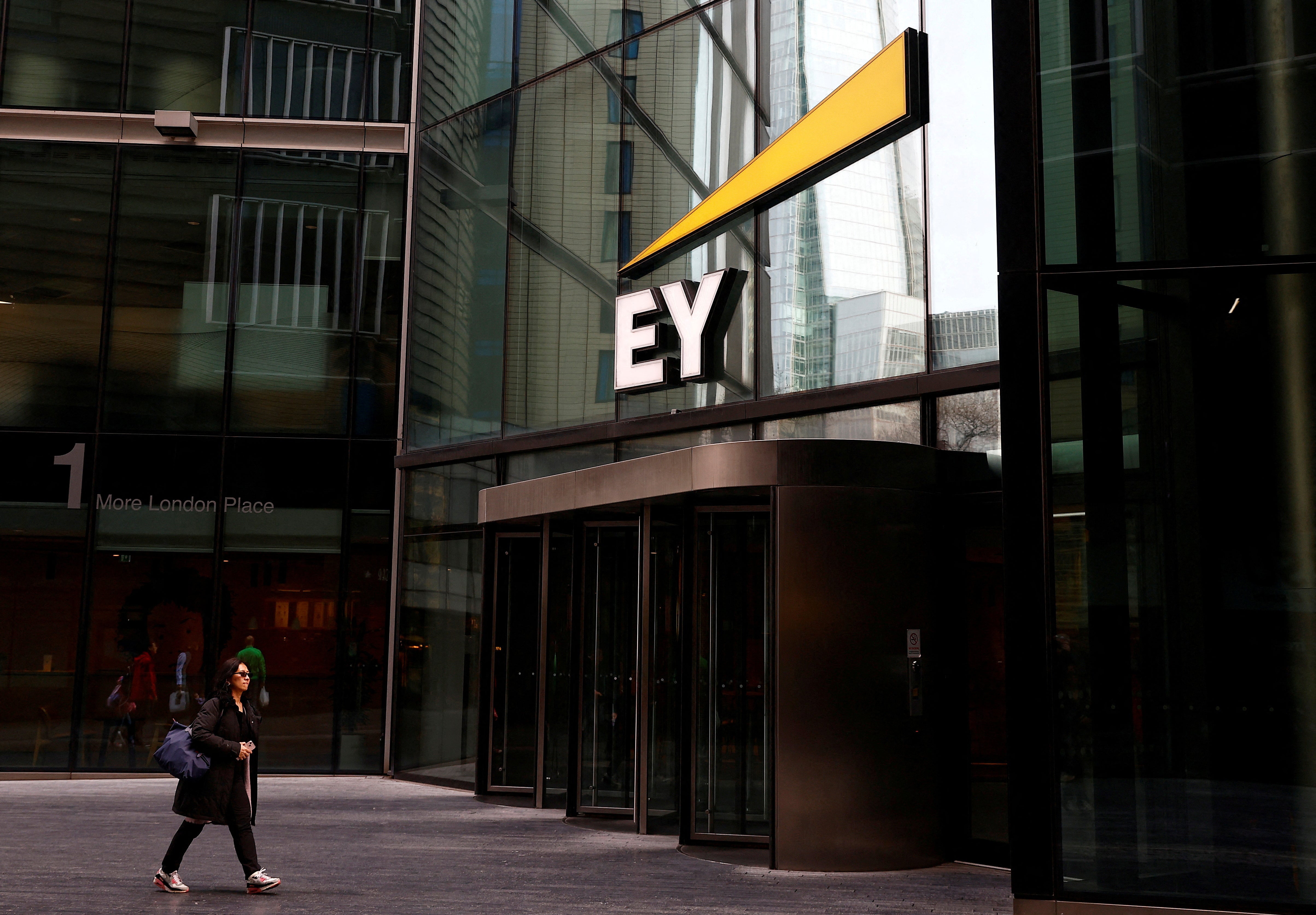How Black Mirror-style surveillance culture could be making workers less productive
People aren’t robots – so why are companies monitoring employees’ performance as if we were machines? Helen Coffey dives into the murky world of constant tracking and investigates whether it could hinder rather than help when it comes to boosting productivity


It sounds like something out of a dystopian novel – sensors tracking exactly when employees are at their desks. But it really happened at one newspaper a colleague of mine used to work for. Bump into someone in the canteen while grabbing a coffee and wind up having a chinwag? Your desk, and therefore your boss, would know.
The regime didn’t last long, apparently – it’s hard to enforce something when an entire newsroom is up in arms about it – but plenty of other workplaces have implemented similar measures. Accountancy firm EY hit headlines earlier this week after it was revealed that data from the office entry turnstiles was being analysed by senior partners to measure attendance.
Surveillance kit can include anything from monitoring emails and recording every keystroke a worker is typing, to using CCTV and tracking devices to keep tabs on movements made throughout the day. Webcams on work computers; handheld scanners used by warehouse employees; AI programs that detect whether call centre workers are responding “correctly” to customers’ queries based on a predetermined script: all of it has been insidiously incorporated across sectors and industries. Tech even exists that records facial expressions and tone of voice to collect “mood and sentiment analysis”. It’s bone-chilling, Black Mirror-level stuff.
According to a study by Top10VPN, demand for employee monitoring software was up 78 per cent in January 2022 – the largest increase in years – while research by Gartner found that 70 per cent of large firms were likely to be using tracking software by 2025. “With remote work on the rise, organisations have been experimenting with surveillance technologies and systems to measure presence, attention and output,” confirms Dr Tracy Brower, PhD sociologist and author of The Secrets to Happiness at Work.

In the wake of the pandemic and the move to hybrid working, fears are rising that technology is being used to increasingly keep tabs on productivity – and as a stick to metaphorically prod workers back into the office, in the case of EY. For someone like me, for whom part of each work day might be spent researching, scrolling social media for inspiration, or simply coming up with ideas – integral to the role but with no specific measurable “outcome” – the notion of constant monitoring is deeply unsettling.
“Intrusive” worker surveillance tech risks “spiralling out of control” without stronger regulation to protect workers, the TUC warned back in 2022. Left unchecked, these technologies “could lead to widespread discrimination, work intensification and unfair treatment,” the union claimed. It cited polling by research institute Thinks Insight & Strategy, which found that 60 per cent of workers believed they had been subject to some form of surveillance and monitoring at their current or most recent job. Three in 10 (28 per cent) agreed that monitoring and surveillance at work had increased since Covid, with workers reporting a rise in monitoring of staff devices and phone calls compared to 2020.
“Employers are delegating serious decisions to algorithms – such as recruitment, promotions and sometimes even sackings,” said TUC general secretary Frances O’Grady at the time. “The Post Office scandal must be a turning point. Nobody should have their livelihood taken away by technology.”
The Post Office scandal was recently thrust back into the limelight again following an ITV drama based on the affair, which saw hundreds wrongly prosecuted for theft and false accounting due to a software error.
Employers are delegating serious decisions to algorithms – such as recruitment, promotions and sometimes even sackings
A report by Data & Society, an independent non-profit research organisation looking at the social implications of data, automation and AI, found that great swathes of worker data was being tracked across industries, “collecting information about almost every aspect of their jobs and sometimes their personal lives, and often without employees’ full informed or free consent”. Many workers had very little idea about the extent to which they were being surveilled or how their information was being used. The Constant Boss report gave one example in which Walmart employees were asked to install an app on their personal phones to check inventory – but it required access to the phone’s camera and location services at all times, and shared this data with their employer unless they remembered to switch it off when they clocked out of work.
“We’ve been alarmed to see the sharp rise in workplace surveillance in recent years,” says Silkie Carlo, director of British civil liberties and privacy campaigning organisation Big Brother Watch. “While millions of people now work from home or in a hybrid pattern, it remains that the home is a private space and we are all entitled to a high level of privacy within them.
“Intrusive monitoring denies staff the privacy, respect and dignity they deserve at work. Good managers should know how well their colleagues are working, without automated monitoring technologies that often rely on the false premise that there is a uniform way in which people perform optimally.”
Unsurprisingly, the vast majority of us don’t like the feeling that we’re being watched and assessed at every moment of the working day. UK workers are “deeply uncomfortable” with digital surveillance and automated decision-making in the workplace, a 2023 survey by the union Prospect revealed. In a poll of over 1,100 technology workers in the UK, the tech union found strong opposition to all forms of digital surveillance at work, as well as decision-making by algorithm.

“This research shows the deep level of concern many workers have with new and more intrusive forms of digital surveillance, which is all too often introduced by employers without proper conversations with the workforce,” said Prospect’s deputy general secretary, Andrew Pakes. “The underlying ‘datafication’ of workers risks driving an intensification of jobs that is bad for productivity, health and morale. Respondents to our polling on surveillance described ‘feeling like a work machine instead of a person’, and said they felt intimidated and believed they were being watched because they were not trusted.”
Because of this inherent discomfort, there’s a strong case for the idea that using tech to monitor productivity can, somewhat ironically, negatively impact productivity. “It all comes down to trust,” Henry Albrecht, CEO of Limeade, a software company providing employee wellbeing programs, told Society for Human Resource Management. “If employees don’t feel trusted, they don’t feel valued and won’t be engaged at work. If you’re pushing … tools that make people feel like [they’re] always looking over their shoulders, you’re eroding trust, which ultimately isn’t good for your business.”
Dr Brower agrees, telling me that employees generally respond negatively to surveillance technologies – so much so, that many will put creative energy and effort into outsmarting them. “People want autonomy, choice, control, trust and respect, and surveillance technology sends a message that the company is questioning the employee or checking up on their work – and this tends to have a negative effect on employee engagement and motivation,” she says. “People may try to game the system or they may give minimal levels of effort. A critical factor in human relationships – including the relationship we have to our work – is reciprocity. People tend to give based on what they receive. As a result, when people feel a lack of trust or respect, they are less likely to give their best effort and they are more likely to leave the organisation in search of a more rewarding culture.”
People want autonomy, choice, control, trust and respect, and surveillance technology sends a message that the company is questioning the employee or checking up on their work
Even with tech that isn’t ostensibly being used to monitor productivity, workers are inherently suspicious unless its use is clearly explained to them; transparency is vital. Those desk sensor devices I mentioned at the beginning of this article? Their main function is to improve efficiency when it comes to office space, keeping track of how many desks are needed and allowing employees to see in real time which ones are free. But when Barclays Plc in London installed OccupEye boxes underneath desks back in 2017, “managers were peppered with queries” when investment bank staff in London discovered they were there, reported Bloomberg. Anonymous employees told the news agency they believed the devices were tracking how long they were away from their desks and that they were worried about taking toilet breaks. “The sensors aren’t monitoring people or their productivity; they are assessing office space usage,” Barclays said in a statement at the time. But that didn’t stop employees from taking the sensors off and throwing them away, according to Brian Kropp, chief of research in Gartner’s human resources practice.
But if businesses are using this tech because they really do want to encourage better performance and enhanced productivity, there are far more effective ways of getting results. Professor Sir Cary Cooper – one of the UK’s leading organisational psychologists – urged companies to measure employee wellbeing to help improve productivity. “Placing health and wellbeing at the heart of a business strategy makes perfect sense – it will help to improve productivity, improve staff retention and reduce presenteeism,” he said in a 2022 report.
Dr Brower, meanwhile, suggests that the most effective way of boosting performance is to give employees meaningful work which – as much as possible – aligns with their interests. “Be sure to also provide opportunities for learning and for employees to build strong relationships with leaders and team members,” she recommends. “And of course, build a strong organisational culture with clear purpose and a focus on both people and performance. All of these amplify employee performance.”
At the end of the day, treating employees like humans, rather than machines, is likely to get the best results. Until we all get replaced by AI, that is…
Join our commenting forum
Join thought-provoking conversations, follow other Independent readers and see their replies
Comments
Bookmark popover
Removed from bookmarks